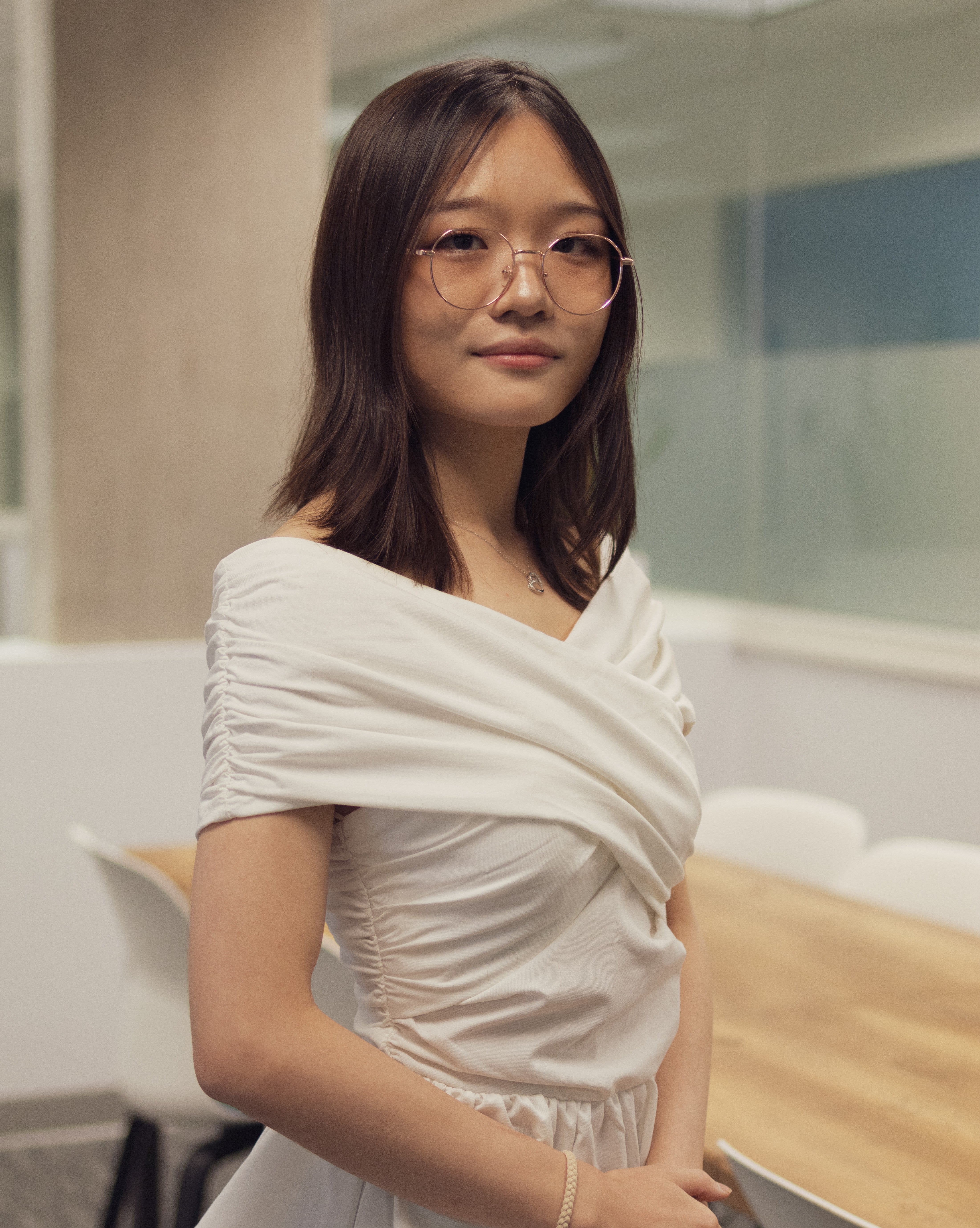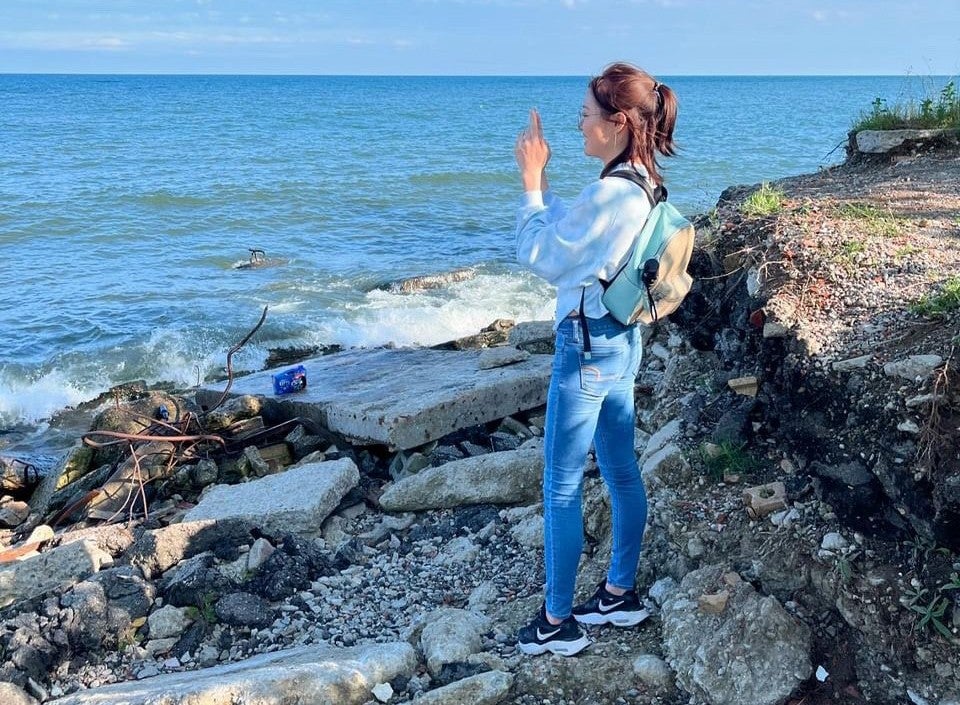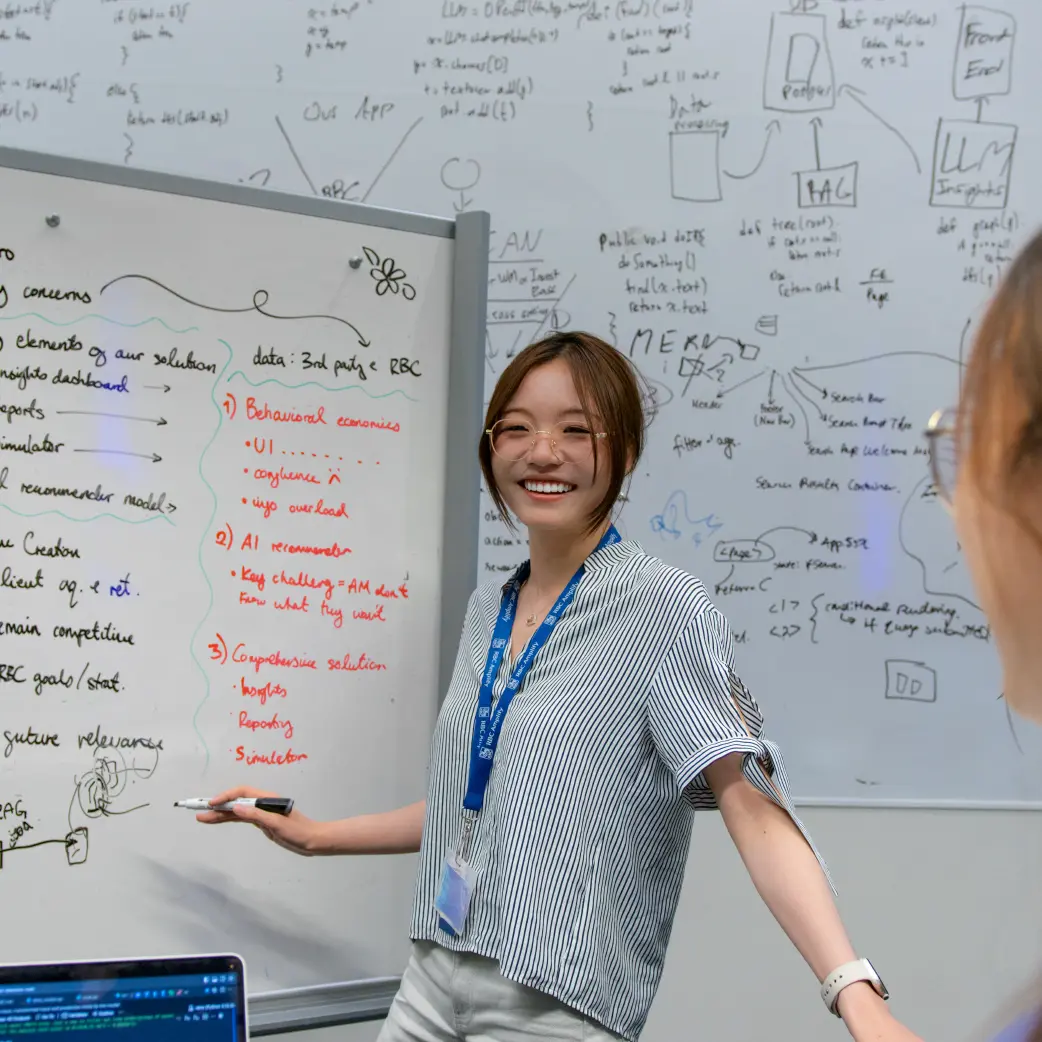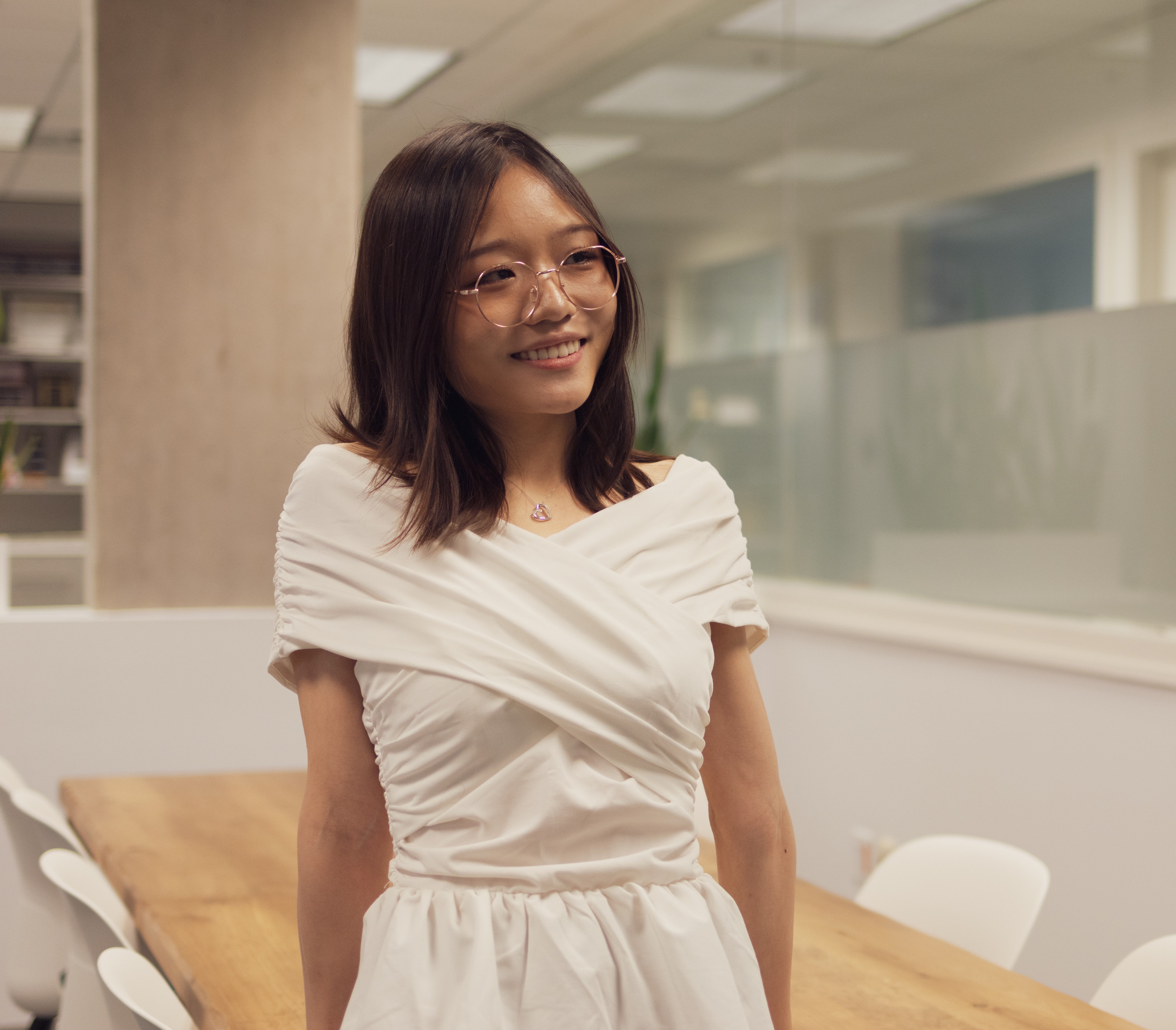How AI is reshaping HR: a new era of intelligent solutions
Linda Wang (she/her), a third-year Computer Science student, is the Co-op Student of the Year for the Faculty of Math! Her incredible work at the Royal Bank of Canada (RBC) played a pivotal role in developing one of the company’s first generative Artificial Intelligence (GenAI) use cases in human resources (HR).
Linda discusses her proudest accomplishments, the challenges of applying AI in industry and the importance of stepping outside of your comfort zone.

During her co-op term at the Royal Bank of Canada (RBC), Linda Wang utilized AI technologies to develop a solution for the Global HR Advice Center, now pending patent, to reshape internal HR inquiry processes for over 90,000 employees.
Traditional HR processes often require significant time and resources, creating bottlenecks in large organizations.
To address this challenge, Linda designed an AI-powered system that enhances efficiency by streamlining responses to employee inquiries.
Her work introduced one of RBC’s first GenAI applications in HR, a field where AI adoption has been relatively slow. By implementing this solution, she not only improved operational efficiency but also demonstrated how AI can drive innovation beyond client-facing applications.
Q & A with Linda
Where do you feel you made the biggest impact in your time at RBC?
“The solution that I developed last summer marked one of the first GenAI use cases in the HR department, which I believe is one of the more underrepresented departments, not only at RBC, but in the industry overall.”
“The newest technology tends to favour client-side applications, not necessarily HR, but I like to say that HR is the backbone of every organization.”


How has co-op shaped or changed your understanding of the AI industry?
“Being able to apply AI in the real world is very different from research.”
“For example, one of the biggest differences I noticed was that everything is generally open to imagination in research, but in industry, there are many more constraints. So, you have to learn that done is better than perfect.”
“Time and cost are always a huge constraint in a business setting because oftentimes you're trying to save money. So, you can't, for example, spend billions of dollars developing a solution even though it might save billions.”
How have you been able to apply what you learned in your academic courses to your work?
“I think what I learned most from university courses was 'how to learn'. Being able to break down complex subjects into simple topics and learn fast is a skill that is very important and helped me succeed at RBC.”
How did you find your work to be meaningful to yourself or others?
“It was definitely a journey of growth. I started the co-op from the ground up, went in without really knowing much.”
“How does everything work? What defines a model? How to use a vector database? I had no idea. My experience at RBC helped me apply my knowledge.”
“Personal growth wise, we had the opportunity to present to VPs and even executives, and as someone who is quite introverted and shy oftentimes, it was not an easy task.”

Why did you choose Waterloo?
“I really liked the blend of study and co-op terms: being able to focus on studying in one term, then work on real world industry projects the next term, you're able to apply concepts directly learned from the courses and reinforce your understanding, which I think is a very valuable addition to my learning.”
What does receiving the Co-op Student of the Year award mean to you?
Receiving the Co-op Student of the Year award is both a recognition and a validation for the hard work and dedication I put in my co-op terms. And it also acts as an encouragement and motivation for me to keep doing what I'm doing.
What is one piece of advice you would give to current co-op students?
“It's very easy to stay where you’re comfortable. Waterloo led me to a unique set of opportunities that has allowed me to become who I am. During this time, I’ve placed myself in uncomfortable settings and never said 'no' to any challenges. Stepping outside your comfort zone and seeing where that takes you is what I always go by.”
“As a famous quote goes, ‘you shoot for the moon and land on the stars’.”

What’s next for you?
“Next summer, I'll be working at Meta as a data engineer. After that, I will be heading to the Chinese University of Hong Kong for an exchange term in January 2026.”
“In the future, I want to see and work on the intersection between data engineering and artificial intelligence, to bridge the gap between research and industry, and to see the theory come to life. Learning is endless, really. I am excited to see where my next stop is and where my journey takes me next — after my meta internship, after exchange, after graduation and far beyond.”